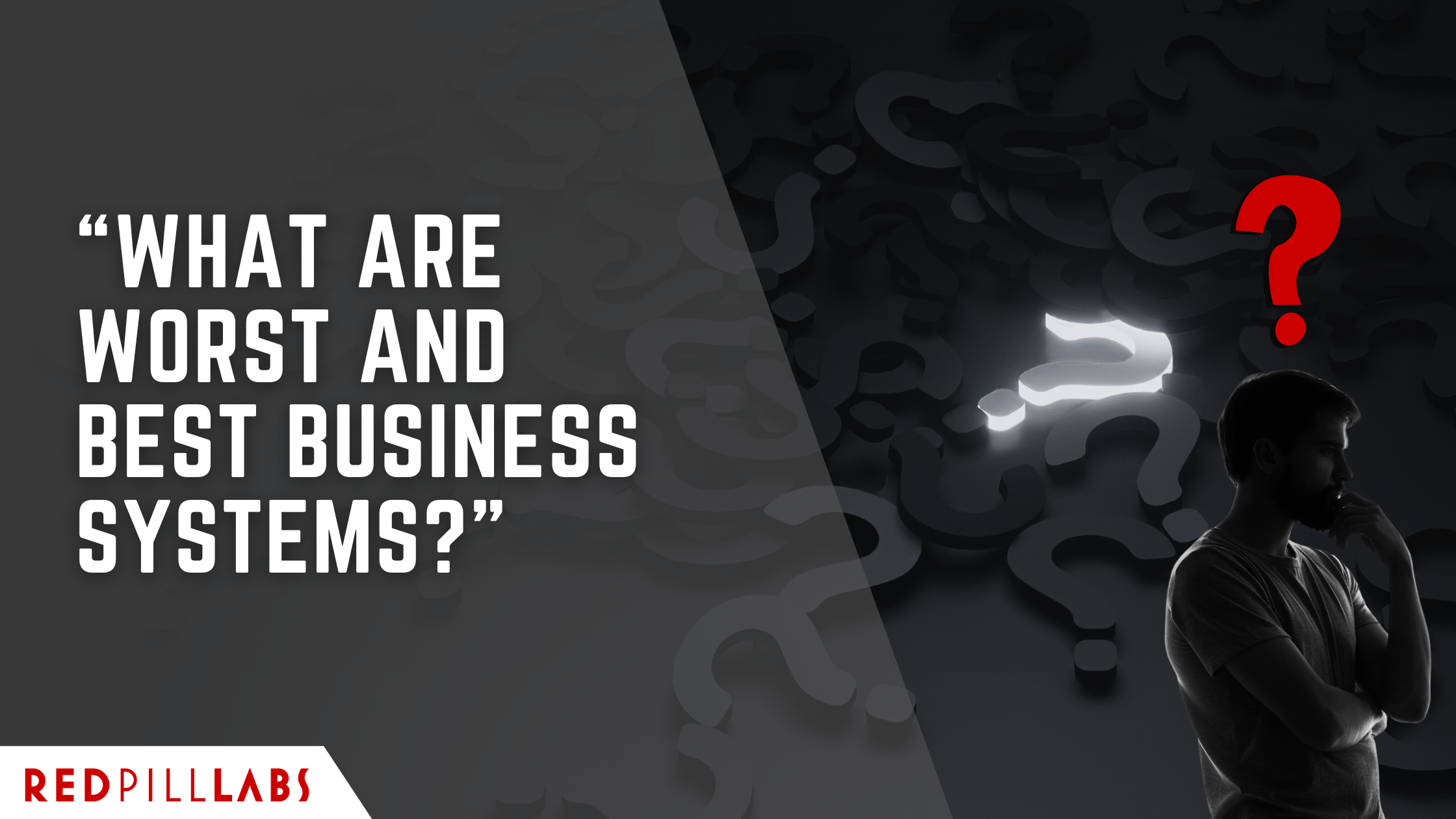“What Are Worst and Best Business Systems?”
blog/what-are-worst-and-best-business-systems
2024-10-30
A common question that gets asked all too often is “what’s the best AI tool” or “what’s the best [insert business system].”
Although selecting an AI tool to utilize is notably simpler than choosing an ERP or HRIS to implement, the truth is that in both instances, choosing the “best” is subjective.
When it comes to business systems, it's easy to seek out the "best" and avoid the "worst”, after all, who wants to say they’re on the “worst” CRM system.
However, what might work exceptionally well for one company will often be unsuitable for another.
Finding the right system is less about the software’s popularity and more about choosing one that fits your unique business needs and goals.
Even reviews from a vendors’ customers can be blown out of proportion with your technology bias.
So, the key takeaway:
Choose a Technology System That’s Best for You
Here’s how…
Why “Best” and “Worst” are Relative Terms in Business Systems
The “best” business system for one company can be the “worst” for another, even if they operate in the same industry.
Your company’s requirements, budget, workflows, and technical landscape all play a role in defining what works best.
Relying too heavily on recommendations from colleagues, friends, or even online reviews can be misleading.
A system that serves another business well may fall short for yours if it doesn’t address your specific challenges or objectives.
Every Business Has Unique Requirements
For instance, small businesses may prioritize simplicity and low cost, whereas large enterprises may need customizable features and robust integrations.
A system praised for its “intuitive design” may not fit your company if it lacks specific functionalities that you need.
In the end, the true value of a business system lies in how well it aligns with and improves your unique processes.
And this doesn’t just apply to large-scale business systems, this approach matters even when looking for “quick wins” with AI.”
How to Avoid the Trap of “One-Size-Fits-All”
It’s tempting to select a business system that’s highly rated or recommended by others, but doing so without thorough research can lead to disappointing results.
Here’s what you can do instead:
Focus on Your Unique Business Needs
Your business may require specific features like advanced reporting, industry compliance, or tailored user interfaces.
These requirements may make one system more suitable for you, even if it’s not the most widely recommended.
Be Mindful of Evolving Needs
The system that worked well a few years ago might not work now due to growth, changes in strategy, or new business models.
What was the “best” system for a small startup may not be scalable enough for a larger organization.
Businesses that adopt traditional structures may have different needs than those that follow agile methodologies, affecting their system requirements.
Don’t Fall for FOMO (Fear of Missing Out)
Systems with extensive features can look enticing, but too many unused capabilities often create confusion and increase complexity.
The most comprehensive system isn’t necessarily the “best”—a simpler system that meets your current needs may actually be more effective.
Tips for Choosing the Right System for You
Since “best” and “worst” are subjective, we have a number of practical tips on our Software Selection articles that can help with avoiding the common pitfalls.
But if you need a more in-depth, specific-to-you resource, give our advisors a quick call (or send an email).
The Real Definition of a “Bad” System
The “worst” business system is the one that isn’t set up to work for you.
If a system doesn’t support your workflows, fails to get team buy-in, or doesn’t deliver the insights you need, it can quickly become more of a burden than a benefit.
Even the most popular or feature-rich system will fall short if it’s not suited to your goals.
Key Takeaways: The Best System is the One that Works for You Right Now
Business systems are tools that should support your organization, and what you need from them will evolve over time.
The best system is the one that effectively meets your needs right now.
Whether you’re looking at a five-year plan or a shorter timeline, the true test of a system’s success is how well it supports your current goals and helps you achieve future ones.
Selecting the right system is about finding one that aligns with your needs, optimizes your workflows, and empowers your team to succeed.
So, remember that the best system is the one that serves you best today, while allowing room for growth tomorrow.








